Why Do Ex-Christians ‘Deconstruct’ the Gospel and Not Their Own Stories?
In the last year we’ve heard these accounts from at least one popular Christian leader, and from a popular comedy duo from an evangelical background. Of course, you likely have many friends or even family members who say they were once Christians, but aren’t any more.
In the new episode of Fantastical Truth, Zackary Russell and I don’t try to refute their points with logic and apologetics. (Others have been doing this well.) Instead we hope to explore why some professing Christians reject their faith, and not others. And we’ll ask a very cautious question: can excellent Christian-made stories help give young believers a stronger faith?1
Podcast: Play in new window | Download (Duration: 58:56 — 55.3MB) | Embed
We don’t mean to offer some Method to keep you strong in the faith, impervious to doubts or competing religions. We don’t say, “Here, read better Christian fiction and you’ll always keep your faith!” But we can look at our own accounts and see common factors.
We can also ask questions like:
- Do people who “deconvert” from Christianity “evangelize” for their view using the language and arguments of only “rational thought”?
- Do “deconstructing” non-believers recognize the significant role of human imagination in their change of mind/heart?
- Also, do they recognize that they are not simply “deconverting” from Christianity but also converting to the default religion of Selfism?
- In the deconverters’ past, what kinds of stories did they grow up with and enjoy for recreation?
- Which images, songs, movies, books, pictures took “shortcuts” to their brains, zooming past all the “rational thoughts”?
- In the deconverters’ present, what kinds of stories have reflected and shaped their dreams, ideas, and deep internal longings?
- What cultural forces have given them these stories, and aren’t these cultural forces also subject to skepticism and “deconstruction”?
How do great stories shape our beliefs?
Great stories shape our deepest desires.
We don’t mean these stories give us desires. Based on our deepest dreams and wants, we will prefer stories that reflect and shape these desires. The stories we love, past and present, reveal what people we truly are.
Great stories shape our view of the world.
For example, some “former Christians” say they met wonderful, moral nonbelievers in the world, who challenged their beliefs just by existing. But if you grew up with excellent Christian-made stories that already included likeable and moral yet non-Christian heroes, then this “groundbreaking” idea shouldn’t have taken you by surprise.
Great stories prepare us for hard truths about God.
Maybe you grew up learning complex apologetics arguments and nonfiction teaching about how/why a good God allows sin and suffering. But you need to experience these things to fully understand them. Scripture itself presents not just abstract teachings, but narratives in which even God’s heroes undergo suffering and other hard realities. Other stories, including stories made by Christians, should be doing the same, so that we are better prepared for this reality.
Subscribe to Lorehaven magazine!
Our new issue released last week, featuring reviews of ten top Christian fantasy novels.
Subscriptions are free at Lorehaven.com, where you can also download all the magazine’s back issues.
Enter to win Tosca Lee’s The Line Between
We’re holding a drawing for two digital copies of Tosca Lee’s pandemic thriller novel The Line Between, courtesy of the author herself
According to our spring 2019 featured review, The Line Between “quests toward truth among apocalyptic madness,” and “truth glimpses give The Line Between surprising heart-warmth amongst the chill, while its road-trip quest drives fast through mad territory and never once feels bogged down in snowbanks.”
To enter the giveaway, you just need to be a current email subscriber for Lorehaven magazine.
We’ll reach out to our two winners next month before we make the announcement.
Next on Fantastical Truth
We’ll be joined by Kathy Tyers, author of many amazing sci-fi and/or space opera novels, including her landmark Firebird series set in a spacefaring world in which the Messiah has not come … yet. Her novel Crystal Witness will re-release from Enclave Publishing this summer. She will join us to explore that story and her whole career crafting spaceships and beyond.
- These are abridged and edited show notes. Get the complete show notes here. ↩

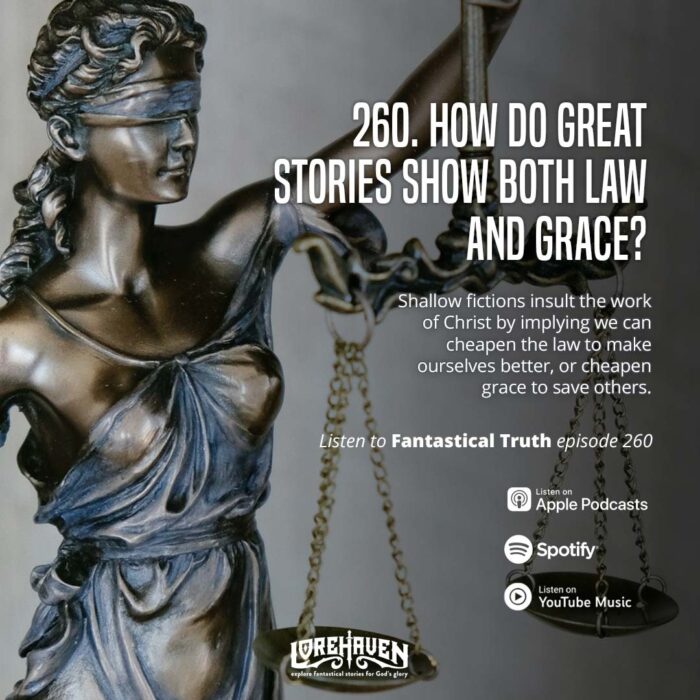

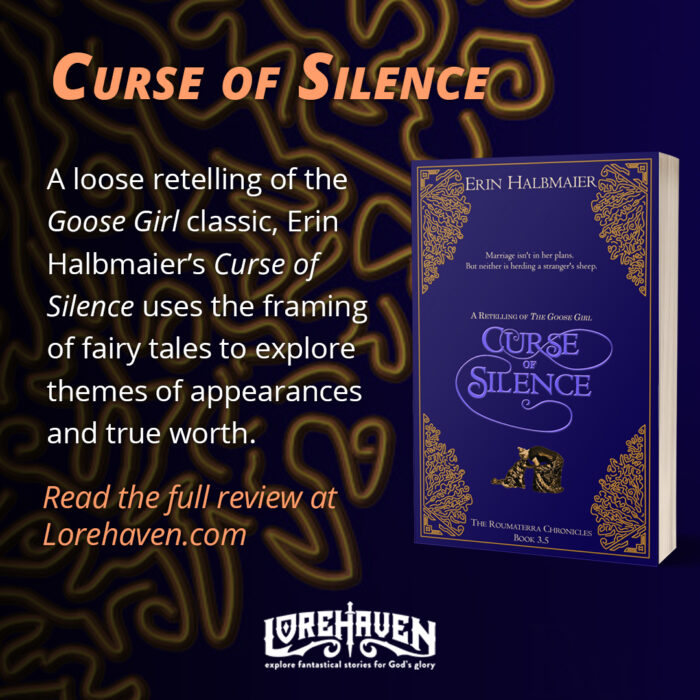
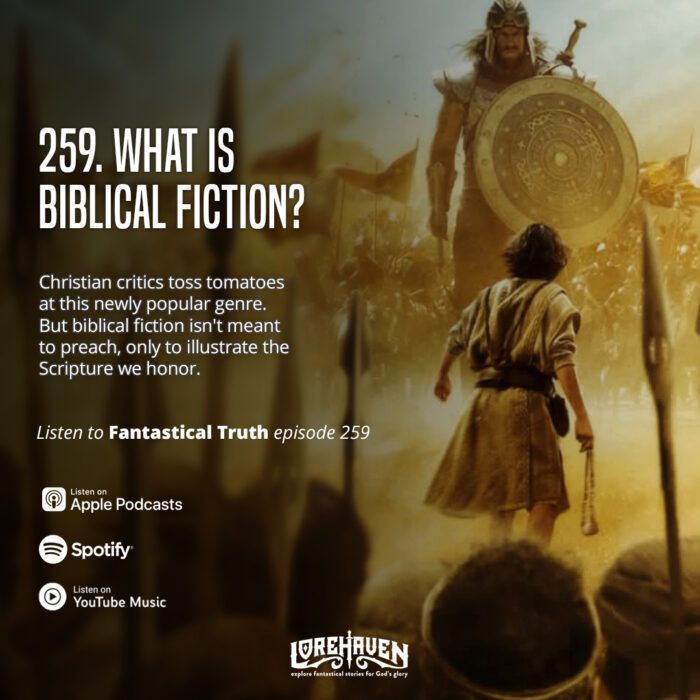
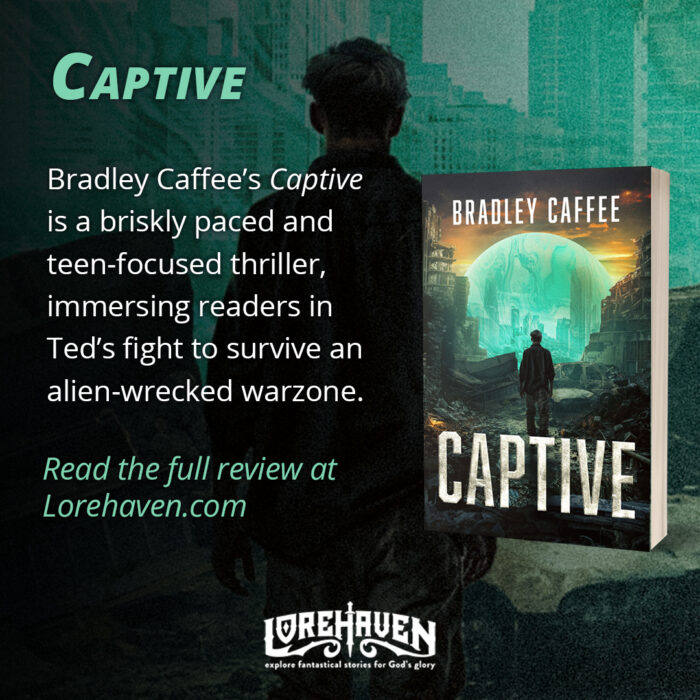







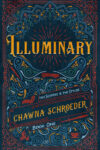

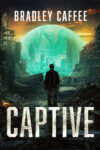


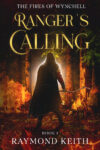
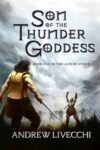

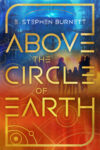






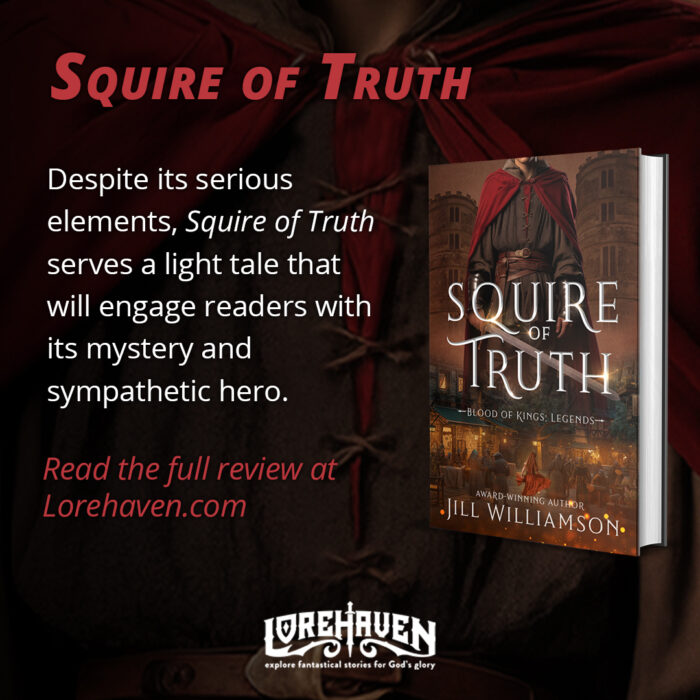

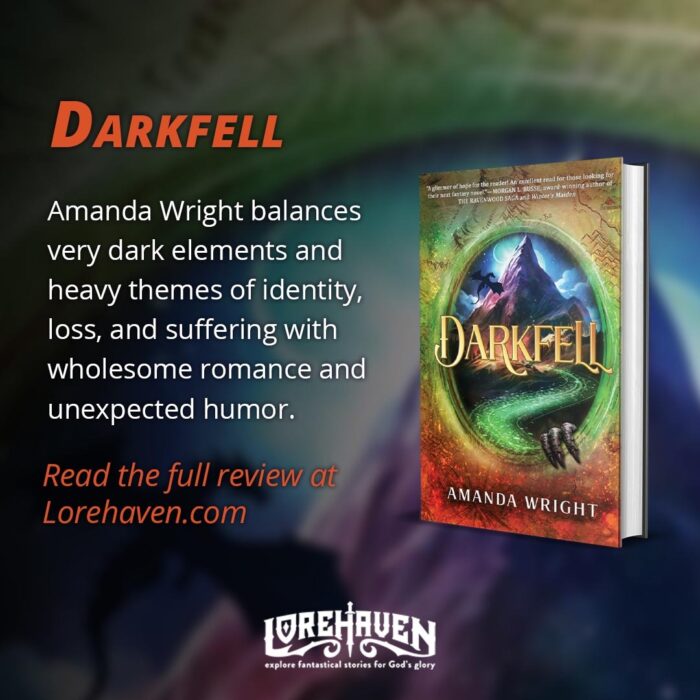



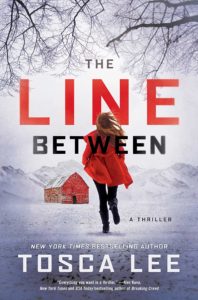




pops head out from under blanket pile Did someone say “deconstruct”? That is one of my favorite words.
But I really wonder what the goal is, trying to browbeat or gaslight people back into the fold (if they’re not trying to force them out of the in-group at other times by declaring them “not really Christian(TM).”) Why do they think they’re going to succeed in their goal of bringing people back to the fold when they just browbeat them or belittle their concerns and feelings? Who wants to hang out with that?
But since we’re deconstructing (yaaass), what are the broad motivations for people to not want do any given activity? Because they don’t feel like they get anything out of it for the effort put in. Most pastorly people want to frame it in terms of selfishness, but that’s not sustainable, doesn’t solve anything, and it’s also not very nice. Strongly arguably unbiblical, too, because thou shalt not muzzle the oxen that tread the grain. (I could write a whole nother essay about my problems with the black-and-white framing of selfishness/selflessness.)
Pew potatoes are a related topic but also one I’m not going to get into here, because it’s not just about physical labor, it’s also about emotional labor. There used to be more younger women available to do more labor back when homemaking and being supported by their husband’s wages was prevalent, but the economic reality is that the vast majority of younger people need to work and have no time for organizing church things. Church is also important as a social outlet, and though I highly recommend people having other social outlets besides church, I cannot blame people who change churches for ones with more young families or more young single people or just more people who are like them. It’s important to socialize with people who aren’t like you, but it’s also a lot of emotional labor.
I also can’t blame people for just noping out of church politics. Stephen gets half credit for expecting dissenters to change the church instead of just expecting them to shut up and color, but realistically how much power do dissenters have in entrenched church political structures? Can they really make meaningful change without just waiting for the worst dinosaurs to die off?
(Also they made a really crap decision to change out the pews at my childhood church. Was that actually cheaper than just reupholstering the old ones? I hate the yellowed semi-oakish stain on them, it looks fake as heck. And while I totally agree that the sanctuary carpet that was older than I am needed to go, did you really have to go for such a tiresome red? Especially with the new ugly oak-stained pews? It doesn’t look okay in there, and even if I haven’t moved cross country I still wouldn’t want to go look at it.)
And then there’s even larger and more abstract issues, like what when you no longer believe nor can support certain doctrines or beliefs? I’m not a Calvinist, and it’s long since past the time you can convince me that Calvinism is a worthwhile endeavor when we could just steal what few good ideas it has and make something better (I feel that about most denominations, tho).
Deconstructing your comment, it’s fairly obvious you haven’t (1) heard the podcast episode, (2) aren’t interested in engaging with the above content. If you had done either of those, then you would have known that we answer your first (reflexive, and frankly rather thoughtless) objections.
I’m not a podcast person. Maybe you should add more detail to your summaries below the link, or provide a transcript, if you want more specific interaction.
But our greatest hurdle to mutual discussion is that I think your argument about the “religion” of Selfism is gronk. I don’t believe in a Law of Conservation of Worship. And it also overlaps my essay of problems about the general Christian cultural perception of selfishness/selflessness.
Eh. Human nature is much more deeply religious than some people want to admit. While “selfism” isn’t exactly a religion, elevating self above all others is a real thing. And there’s plenty of people who believe in it. And it isn’t that unusual for people who give up believing in God to go around seeking what will make them happy, everyone else in the world be damned (so to speak). Though not all deconversion is the same.
However, the people who literally believe in “selfism” the most are the Ayn Rand people–who normally identify as “Conservative” because they are fans of laissez-faire capitalism. But what they believe is very, very wrong from a Biblical perspective…
I think we can agree that American libertarians = mostly a**holes.
And I hope you appreciate how hard I’m trying not to go completely off the rails into my chewing over what I don’t like about the cultural Christian conceptus over selfishness/selflessness.
I’m sorry, Dave, I’m afraid I can’t do that. 🙂 Transcription is an intensely lengthy process, and time is limited. In short, however, I can point to the episode (which is directly linked in this article) as an “audio article” that explores the limits of the “deconstruction” approach.
Even the notes above, however, provide a fair summary of the episode content, which has nothing to do with the accusation of “trying to browbeat or gaslight people back into the fold.”
In fact (as Travis’s more negative response below supports!) we strongly emphasized the positive side, i.e. how do good stories shape our beliefs and help biblical Christians stay stronger in their faith? If anyone is instead browbeating, I’d disagree with that approach. But it would also be strange to presume that the only “gaslighting” going on is lit up by Christians or evangelicals. For example, some “deconverters” claim they’re offended by some biblical doctrine or other, and yet they really just want to sleep with their girlfriends. 🙂 Our sidelong point is that people who convert away from Christianity have complex reasons. It’s not all head versus all heart. Often, one of these excuses the other.
Oh yeah and “they really just want to sleep with their girlfriends” is not belittling AT ALL, sure.
(Also, usually they are already fooling around with their girlfriends. That’s another topic I could essay about, being set up to fail by the purity ideas not even from the creepy end of the pool.)
Read the very crucial word “some” in my above sentence: that is, some “deconverters” … really just want to sleep with their girlfriends..
It’s a plain fact that desire to commit sexual sin leads one to challenge and reject one’s Christian faith. That may not be your story, but let’s not be so silly as to presume our own stories (or bad experiences with “purity culture,” et. al.) ought to be pasted atop others’ accounts. People are very messy and we all have individual stories and reasons and experiences.
Also: “That’s belittling” does not alone make a worthy objection. God’s command/holiness > human feelings. Moreover, everyone actually agrees upon this whether or not they believe it. Plenty of abusive church leaders respond to accusations about their evils by saying, “That’s belittling,” as if their subjective feelings somehow overthrow the command of God not to oppress victims and lord their authority over other people. Far more serious than the possible sin of “belittling” people is the crime of “belittling” the revealed word of Jesus. 🙂
Bruh, that’s the problem encapsulated, that dogma is more important than people.
Is this your “dogma”? Dogma simply means “beliefs.” Everyone has beliefs. Everyone also believes that some beliefs are more important than how people feel. This is called simple moral persuasion. In this case, we can each name specific evils that we believe strongly are evil, regardless of how people (including those committing the evil) personally feel about it. To call an evil “not evil” for the sake of not offending or hurting a person (by that person’s own self-definition of hurt) goes by another term: enablement.
Literally, the rationale you are presenting here is, in other contexts, the exact rationale used to prop up abusive religious leaders who are not called to account because their defenders claim that calling them to account would be valuing “dogma over people.” Neither of us want that to happen.
Wat? I was following the first paragraph, but the second one lost me. So I’m going to ignore that one and engage with the first.
So you’re calling the urge for sex an evil? I mean, presumably the girlfriends also want to mess around. I wish you’d look at the thing as it is rather than catastrophizing it. What harm is being done with your average consensual premarital? Degrading the property values? People arent property. Setting them up for a lifetime of failure? The stats aren’t there. It’s arguable that young-aged marriage does more to do that than simple premarital. Ruin their ability to commit? The ones I knew who did the proper thing and married their baby daddies have divorced them, including a new instance just this last week or so, though 10 years is still a sizable commitment (since when was I that Old??!?)
But maybe it’s a liberal thing, to want to fix the rules so they work for as many people as possible rather than just doubling down on the extant ones regardless of functionality or harm caused.
No.
You seem to be ignoring all of what I’m writing, not just the first paragraph but the second. As a result, we’re going to talk past one another.
Let’s try this again.
In other words, we both know cases in which a Famous Christian is accused of actual unbiblical (and illegal) acts of abuse. But people defend the accused abuser because, well, if we don’t back up this man, then People Will Be Hurt in the church.
I’m saying: this is nonsense. Truth is truth, regardless of how people claim to feel. And in this case, it’s actually real victims who get hurt in the attempt to “stop people from getting hurt.”
What you’re doing here is a rather odd first-world obsession: “telling people it’s wrong to want to have sex however/whenever/with whomever they like (consensually) is the Worst Thing Ever.” This is the myth that “sexual repression” is the chiefmost evil, if not the worst evil (second only to racism). Back in the 1950s, of all times, C. S. Lewis was already observing that no matter how publicly people would Talk About Sex, the sexual dysfunctions never quite cleared up. Turns out that (plot twist!) just Talking More About Sex is not the cure-all to human sexual dysfunction. Our culture is sexually gluttonous, and it’s far past gross—and far past the point of hurting children and others.
To ignore our wider culture’s sexual gluttony (on a scale of millions) in favor of only shouting into a small culture about how Those People are just too darn sexually repressive—well, it’s an interesting hobby, but it’s increasingly rather niche. In fact it’s more niche than the silly fundie Christians who used to make the orange T-shirts that say “Jesus” in the font style/color of the “Reese’s” candy logo.
It’s interesting how I tend to see this. I was raised around Christianity as a young child but my family had mostly departed from Christian practice (mostly because my mom still prayed at times) by the time I was eleven. A kid who liked to read science fiction, my pre-teen and teen days were surrounded by atheists and skeptics of the faith through stories and essays I read–personal big influences for me were Heinlein and Asimov.
In spite of those influences, I found faith personally, between me and God, not in a church. I wanted to know though if the faith was based on truth and I was never afraid to examine things myself. I studied Greek and Hebrew and Biblical criticism of all kinds, the Dead Sea Scrolls and Bible history so I would know the basis on which many people claim the Bible is false. And I learned that while there are many gaps in what anyone can know about the Scriptures, many of the contradictions commonly fixed on are easily answered. I feel confident my deep study of the Bible has yielded me evidence that it’s the authentic Word of God.
I have also never shied away from digging deep into science. If the evidence were to show the universe created itself, I wanted to know it–and would have admitted it if that’s what I found. But on the contrary, I found that science as an overall discipline swaggers around like the universe is explained or close enough (not every last scientist of course, but so many, and so many atheists) and it is so FAR from being explained and the idea of God makes the whole thing make so much more sense than a system without God. As I painstakingly explained in a 12 part series here on Speculative Faith.
So for me, when I see these people raised in church who spend some time getting out in the world and then notice the simple basic Christianity they learned in their cultural Christianity isn’t true, instead of digging deeper and seeking to learn more like I did, they (from my point of view) flop over and accept everything that’s the opposite of what they used to believe.
While I can feel sorry for them in a way–because I really believe they are missing out on the truth–and while I can call on them to come back to Christ, the real Christ, not the phoney-baloney cultural stuff, I am also kinda angry at those who chose to “deconvert.” I see their reasons as intellectually lazy and sloppy. They have not done the research I have done–they did not come from basically being on the outside and wanting to know, more than anything, what is true.
No, they simply discovered the simple Sunday School version of Jesus wasn’t quite the truth. Yeah, if they had studied their Bible, they’d know that already!
Part of my desire is to produce speculative fiction, really science fiction to be clear, though I also do fantasy, that challenges the thinking of young Christian minds and get them to ponder their faith and see great things in it. That’s much easier said than done, but just as ideas were out front and evident in the stories by the Sci Fi writers I used to marinate it, I want to have the same effect on getting people to think about Christian ideas.
But as far as churches go, they should do a whole lot better job of teaching the whole Bible…
For the most part, I agree with you. I know you see me as one of the floppers, but I’ve walked most of the same area that you have. We can compare notes for what you read and what I read, translations and source notes and dropping names, but at the end of the day, you decided it was enough to keep you in the generically Calvino-flavored fundagelical ballpark, while I….didn’t. If you think you have texts or papers that would convince me otherwise, throw some links over if you feel like it.
But yeah, you touched on another recurring motif I was going to bring up, that insistence on certainty. The thing is, that’s not really as important as what you or most leaders or most apologists like to make of it. Or at least, I find it’s not as important to me as what the leaders and apologists want me to believe it is.
But most of that is an inborn personality thing (also tracks as a trait for authoritarian followers). I have much less a need for certainty than, say, my dad, so in a lot of ways it feels like I’ve “outgrown” this specific factor since I’ve wiggled out from his nesting anxiety in general. I’m okay that science doesn’t have ALL THE ANSWERS FOR FOREVER. I think there are other, better ways of addressing existential insecurities than needing ALLS THE ANSWERS FOR FOREVERS.
And that probably loops back to our recurring Thing about recklessness vs safety vs legalism/control. Y’know, the one where you do the equivalent of warning me about the dangers of alcoholism and I’m over here going, dude I’m not endangering my liver when I drink red wine with dinner. (That’s still a metaphor because my real drinking habits not even that sophisticated. I buy a bottle of flavored vodka on sale and mix it with fruit juice like once every two months or so. Since COVID shutdown I’ve bought a 6 pack of small-batch saisson and found out that I am still not a beer person and I should stick with my cheap flavored vodka.)
My biggest complaint about your intellectual orientation, if we want to call it that, is you learned your simple cultural Christianity was wrong but when that wall broke down you didn’t, as far as I can tell, dive deeper to wonder what might be wrong with the secular perspective you adopted instead. That second wall is also riddled with contradictions (mixing metaphors but whatever) but they are not as obvious.
I see you not as one who is comfortable with uncertainty as much as I see I am not satisfied with being possibly wrong–I wanted to know everything that can be known, though of course that’s impossible. But one of the things I discovered is that a certain level of uncertainty does not go away, not ever, not for anyone who will be intellectually honest. And I am absolutely ok with that. But I don’t think you really know that–at least you act awfully certain about many, many things.
I have challenged you many times on particular contradictions I see in your point of view (e.g. how can gender be a societal construct in which women can act much like men and vice versa /and also/ a 3 or 4 year old can intuitively know their biological gender doesn’t match their “real” gender?). Mostly you have not answered at all when I did so. I generally see no answer as a bad sign.
If you’d like to talk via email (you have my address) about what you studied and how it convinced you, I’d be happy to have that conversation. Super happy. Maybe you’ve read some books I haven’t–almost certainly you have. And I’d like to know what those are and at least look them over, if not read them.
But again, I think you are reading my personality wrong. I’m not rule-obsessed. I don’t even like rules. I am, yes, continually fighting my own impulses to sleep around with as many women as I can, punch some people in the face, play video games literally all day and all night, etc. (The first impulse I’ve never enacted and the second I haven’t done since Junior High.) Yes, I do speak to dangers of excess at times. But really, we live in a culture of excesses. I am a far, far cry from being the only person like me in that way. You also, I would say, engage in at least some excesses from my point of view…
Yeah, it’s clear you are not as compulsive or obsessive as I am, even though you have your particular things. But first, my personal response is not all rules and controls all the time (I think I have almost nothing in common with your dad, though I can’t be sure, not having met him), and second, one of the things I can obsess over and compulsively perform is seeking out what is actually true. You have not sought the truth the way I have. I’m reasonably sure of that–because if I were in your place, I would have asked more questions than I’ve ever heard you ask.
I will say this though–you have read and studied some. Unlike how Joshua Harris and others like him seem to me. But I think you need to study /more/…
Have we actually had an in-depth conversation about trans people or is that just an example? I thought it was just an example.
But to give a relatively short answer, it’s the result of infighting on the Left. The social construct faction is different than the inborn identity faction. (I fall more on the social construct side. IDK what I’d do with a trans 3yo, but they got plenty of time to play with gender roles before puberty might prompt a decision. And even after that they could still transition.)
Changing subjects, is it actually a plus to be neurotic about a search for truth? I dunno if that would be more likely to prod someone toward the truth or just latch onto a good-enough mental security blanket. Because I think that’s how cults happen.
Your partial apathy towards “What is true?” is not actually the same as being fine with uncertainty. At least, I don’t think so. I think it’s being unwilling to take the risk you are wrong and to keep being wrong if need be and ask dumb questions if you must because you really want to know the truth.
You also just explained to me something about how liberals are (yes, by the way, I definitely asked the question I asked before in another conversation–and you gave no answer). Why did you explain liberals? Because they are your people. They are your tribe. So you feel you need to explain your tribe to my tribe.
Except I’m me–I’m not in any tribe. I’m not a Calvinist (I once literally wrote five points that partially agree and partially disagree with every point of Calvinism). I’m not a Fundamentalist, though I once was and I’m not far away in some ways. I’m not a Libertarian. I think some Socialism is beneficial, as long as it doesn’t attempt total governmental control of the economy. I’m not a Republican as a result, not really, though I usually vote that way because of one particular issue. And on science where am I? I’m both critical of the atheism some scientists claim their work justifies but /also/ a science enthusiast.
Yes, I go to church and am in the Army and thus work in groups but as far as what I believe is concerned, I am quite a loner. I have no tribe.
Cults are started by people who seek to answer questions then they become sure they have the answers and then go out and get flocks of followers. I am reasonably sure about some things. But I have no flocks of followers.
If you really want to take a deep dive and you and I go through my reasons, I’m willing to do that. Email me if that’s what you want: tt_perry@hotmail.com . But if you are going to really listen, you might have to leave the comfort of your tribe. It’s lonely caring about the truth more than caring about having a group of people to affiliate with. Seeking truth is risky behavior–you don’t know what you’re gonna get.
And yes, I’m glad my risk-taking and obsessive-in-some ways personality has set me up for wanting to know what is true and doing the hard work to really understand it. It’s a gift from God–but it should not be just for me if I’m going to “love my neighbor as myself.”
So if you wanna talk for real, I’m available.
Congratulations on being a special snowflake!
And while another round of email arguing might pull up some interesting topics, it feels too much like it’s going to be me auditioning for your approval, which I find much less interesting.
I mean, if you have specific questions you want a leftist and/or my take on, sure, I have an email at notleia@protonmail.
This aligns perfectly with the challenge that people who “deconstruct” Christianity need to at least be consistent and subject their own secular worldviews to the same kind skepticism. As it is, they’re being highly selective, and just happen to “deconstruct” only the biblical faith that has by bizarre coincidence fallen out of favor in Western nations. No bravery points and few intellectual points awarded for this. 😛
Yeah, good point. Thank you for clarifying that purpose for me. It should have been clear enough I suppose, but for me it wasn’t quite.
Postmodernism is just as Western as Modernism. I’m pretty sure I’ve dropped this Contrapoints vidya before:
https://youtu.be/4LqZdkkBDas
I listened to your podcast–you know, guys, I feel there is a tremendous shortage of stories that really make Christians think about their faith in a positive way.
Zack talks about The Left Behind series as an example that helped his imagination at one point in his life (though perhaps he would not be now). While we can’t deny the influence of that series, in some ways, it was a tremendously unimaginative view of eschatology. I hope you guys see what I mean.
And a lot of the new Christian stories that I am aware of are also kinda void of original thought. It doesn’t have to be the case that every story is hugely imaginative–but so many strike me as, well, banal. And I am not referring to the overly-overtly-Evangelical stories you guys have mentioned critically in the past. I’m referring to certain stories that are more “subtle” and supposedly better.
There are /some/ examples of Christian writers really spinning imaginative ideas. But it’s kinda rare…
Yeah, your observations about nice, real non-Christians is an actual thing. But it isn’t just that some people think that non-Christians are inherently bad and are surprised to find out they aren’t. It’s that people haven’t really noticed what the Bible says–as E. Stephen mentioned about God making the sun shine on the just and unjust or the Scripture says evil people know how to give good gifts to their children. People haven’t studied Job, either (which you guys mention)! Or absorbed that some of things the people of God do in the Bible are not good things–some people of God were not very nice. Or have absorbed the passages you guys mentioned about “deconstruction” already underway in the First Century.
So I think a lot would be cured by people studying their Bible better. Though of course good stories can help! (And I agree more Christian stories should show death and suffering.)
Though I think you guys are also missing how stories can and do lead people away from Christ–there are also tales that have a negative influence in the world. Yeah, it’s complicated because a story may be positive for one person and negative for another (though some types of stories are generally more negative). But you guys hardly even mention the negative potential–which I think you should also mention.
It’s as if you are willing to talk about negative aspects of the Christian life–but are not willing to talk about stories ever being negative. I think your reasons (though I can’t be sure) are probably because you think being positive is more attractive than being negative. But that’s the exact same reason some Christian writers have avoided suffering and death in their stories…
When they talked about people deconverting, they did say they wondered what stories influenced those people to deconvert. And they kinda talked about the importance of having stories that influence people to stick with God instead. Taking things like that, it’s pretty well implied that they believe stories can have both positive influences and negative ones. But they are also trying to avoid being too condemning, showing more willingness to take a moment and listen to people’s stories instead of just trying to argue them in and out of their position, and that approach does have some merit.
I kind of have an answer to the liberal stance you were questioning, about how they sometimes act like gender is a mere societal construct and other times act like it’s innate, but I don’t know if you’d want to hear an answer from me or just notleia.
BTW, I noticed that podcast link thing on the bottom of your last article and tried it out, but it gave me an error. You may want to double check it.
Um, actually I think you are right that there was a single line about wondering what stories influenced them to deconvert. But then Zack said something about it seems like they never engaged in imagination prior to that point. And my line of reasoning here is that’s virtually impossible in our culture. They probably were exposed to stories over a long period of time and had been exercising their imagination the entire time, at least a little. My point being that the exercise of imagination in and of itself isn’t a bulwark against deconversion. It may in fact have been what caused their deconversion all along, which may have been a process ongoing for a long time.
Also, this podcast spent a bit of time talking about what kids ought to be exposed to at a given age vis-a-vis stories that show real heartache and suffering.
The difference with what I’m saying and what they said is not that I think E. Stephen and Zack should rail against deconverters and argue them to death. But rather they should stop acting as if, “All we need is more stories in our lives, more imagination, and everything will turn out sunshine and roses.”
It matters what the stories are. They have to be good–or at least, that’s what I would say. And it seems to me that E. Stephen in particular has resisted offering any definition of what a constitutes a good story. When offering a definition of Christian fiction, he offered, “That which is written by a Christian.” When I wrote a comment on that podcast postulating it is possible that a Christian to write something that could be a negative influence, or perhaps which should not be called “Christian,” he gave no answer. Yes, it is true that he and Zack in this podcast said good stories should show the Christian life is not necessarily easy and should show some complexity of God. I agree with that point. But is showing complexity the only criterion for fiction that’s “good?” I wouldn’t think so.
There are other things bothering me here, issues that prodding me in the direction of wondering if promoting “fantastical stories” in the way Lorehaven is doing doesn’t run the risk of doing damage. I could share details, but a lot of my objections do center around the notion that while there are many different types of good stories, not all stories are good. And even some stories that are good in some ways, are bad in others. I would say this is a basic issue, extremely important. Not a side issue that doesn’t really matter so we don’t ever have to talk about it. (That is, talk about it directly. You know, the way the Bible is direct about things.)
Hallo, Travis,
A few responses:
This is not a missed topic. It simply was not our focus with this episode to spend all or most of the time warning about harmful stories. (See other episodes, such as episode 5 in which we warn about sexual exploitation in visual media, for examples of warnings against threats from stories. Future episodes will also focus on risks and how Christians address them.)
We specifically disclaimed such a “prosperity gospel” at the beginning of the episode. 🙂 This is not a fair hearing of our presentation—any more than I would say your statement “a lot would be cured by people studying their Bible better” offers a perfect formula to spiritual sunshine and roses.
Very true. Just as it is possible for a real Christian who loves Jesus to believe unbiblical things, or to make unsubstantiated accusations. For my part, I would still call that person a Christian, unless a repeated pattern of unrepentant behavior and beliefs call that claim into serious challenge. For my part, too, I would still say they write “Christian fiction.” (Not that this makes things easier. For instance, my perspective makes The Shack at least one-third Christian, simply because at least one of its coauthors is a rank heretic, but another coauthor specifically disavows the heresy and has persuaded himself it’s not actually in the book.)
For this I must, first, condemn the accusation as a strangely silly one, especially the part about “dissent.” Second, I must ask you to practice either ordinary human understanding, or if need be, special grace for yourself, to recognize that it is growing increasingly difficult for me to keep up with all correspondence. Lord willing, this is not the “event horizon” I am crossing, after which I truly can’t keep up with feedback on social media, emails, and beyond, and therefore get hit with the slanderous criticism of “he’s ignoring my critique!!1! clearly this shows that I the critic Have Something On Him!!1!” However, I’m soberly aware that this may be that stage, even apart from all the virus upheaval! 🙂
Regarding other claims you made in other comments, I must restate the purpose of Lorehaven: the magazine, the broader website, and the Fantastical Truth podcast. We want to find truth in fantastic stories, and apply this truth to the real world that Jesus Christ calls us to serve. This does mean that our emphasis is primarily positive. However, this will include identifying lies and challenges and temptations along the way. (See our allusions to the inconsistency of the “deconversion” folks, or the risk of interpreting their stories with our own experiences rather than Scripture, and episodes such as ep. 5 about the dangers of sexually exploitative TV and movies.) But our purpose is not primarily “to find lies in fantastic stories.”
This is best reflected in our reviews, which are limited only to the good stories made by Christians that we’ve been able to find. Each review, however, also includes that all-important Discern section that lists elements in the novel that some readers could find objectionable—including questionable or even false teachings. (One book, Ted Dekker’s The 49th Mystic, holds the record for a four-line Discern section!) Other books may not even make it to the review stage, if we find their content to be overtly anti-Christian despite the author’s profession of faith.
Our emphasis is positive not out of some wretched “seeker-friendly” motive, as you have suggested. Rather, we find that excellent Christian-made fantastical stories are causes for joy and delight. We want to share these stories with more fans, and on the way, explore how we can enjoy/engage/discern them based on a biblical worldview—a worldview of grace and worship of Jesus, whose joy and holiness inspire us to pursue the same in equal measure, motivated by happiness, not fear.
By the way, our primary audience is Christians. We’re not trying mainly to use stories as a Platform for Evangelism or even basic doctrinal training. At some point, we have to assume our audience is already tracking with us about gospel basics such as Jesus, sin, and redemption.
By saying “our” and other first-person pronouns, I distinguish between Lorehaven and Speculative Faith. SpecFaith has predated Lorehaven by many years. They’re in the same “star system” but they are not the same planet. So, if you follow me, the “ecosystems” on each planet may be different. Which is why it’s important that we have many different voices to cover many different angles. Example: When folks criticize me by saying, “you didn’t say enough about X,” I might reply like: “You’re right, because one can’t cover everything in a single article; I’ will let my body of work, past, present, and future, speak for me.” But here I could say even more. I could say, “Yes, I didn’t say enough about X, because of a creative and content choice about not trying to say or cover Everything. But I’m not the big kahuna of this whole thing anyhow. Travis Perry, who writes on SpecFaith on Thursdays, sometimes about the Devil and things, has a lot more to say about that. Why don’t you check out his series?”
In fact, in this very discussion, Azalea pointed out the strength of our episode plus Travis’s additional perspective here:
Every voice is different. Everyone has varying roles in the body of Christ, and sometimes we change “parts” depending on ministry stages or purposes. Some because of their culture, experience, and giftings may feel more called to warnings and defensive postures. Others may feel more called to other things (though they must still keep an eye toward holiness warnings and doctrinal defense just as Scripture does).
To sum up: we invite critique of content, because that’s biblical “iron sharpening iron.” But when one crosses from that critique to “I didn’t get a direct response to that critique, which reveals a Spiritual Problem,” then that’s going into the field of personal offense. For my part, I’ll address either one whenever I’m gifted with the time and ability. But please do not make false judgments based on my unavailability. Anyway, Lorehaven is bigger than my own views, and with many other voices contributing to Lorehaven and SpecFaith, we can cover far more ground.
E. Stephen, you and Zack said similar things and I answered him first. My answer to you would be along the lines of what I said to him, so please look at it.
The one thing that I would say specifically to you in this comment is a response to your statement “Lorehaven is bigger than my own views.” Indeed it should be. But are views other than your own sufficiently expressed at Lorehaven?
Perhaps they are and I’m not wholly seeing it. But what I’m seeing is there are diverse points of view about very basic issues in the world of Christian speculative fiction writers…and Lorehaven is not representing that diversity. It’s showing one basic way to look at things–which is essentially your way. (It pains me to say that, but this is how things appear from my point of view.)
Now, do you have the right to have things your way? Aren’t you the publisher? Yes, you do have that right. But I feel concerned at a magazine who overtly claims to represent a community that in fact only represents a segment of that community.
As for my comment about you suppressing dissent by not replying at all–that comment of mine became very obviously out of line the instant you responded. Though certainly my remarks should have been more moderate in the first place. My reason, though it isn’t a good one, is I had started to feel the silence I’ve faced for a while now was intentional. I in fact had no evidence that was true, other than the lack of reply. I shouldn’t have done that. And I offer my sincere apologies.
You’re a brick, Travis. Thank you, brother.
I’ve gotten hit with a few other last-minute commitments so I can’t at this time engage much further, but briefly (truly) on these two bits:
To re-clarify, we don’t claim to represent/be about “the world of Christian speculative fiction writers.” We’re fan-centric.
A look at the magazine’s quarterly masthead and contents will answer that question. From the spring 2020 masthead, we have five members of our review team (they write all the reviews) plus several editorial staff members including myself (and I also function as publisher). The podcast is more a direct-opinion transfer, a collaborative effort with Zackary Russell with material and organization, with occasional guests.
From earlier:
I can’t recall Zack’s exact phrasing, but to clarify, I believe that it’s more about how these “deconverters” seem blissfully unaware of the role of their own imagination in their pivot away from Christianity. They seem to think it’s all just “facts and logic” for them, but have no clue about what’s really going on with their heart-level desires—and the stories they’ve chosen to shape/draw out those desires.
I know you weren’t saying that E. Stephen and Zack should argue people to death, but you mentioned that you thought they took the approach they did because they want to be positive. I was simply adding more reasons to the list and trying to say that, in some ways, it’s good that they are being self aware and trying not to be overly pushy or argumentative.
E. Stephen and Zack already defended themselves and confirmed a lot of my suspicions, as far as their stances and reasons for things, so obviously I’m not going to go on about it more. In the sense of some stories being bad and having potential negative effects, I definitely agree. Honestly, to me it’s an obvious given, and just about everything has both positive and negative effects. But how would you personally define what stories are ok or not? Can you (or should you) boil it down to a couple sentences, or even like a Ten Commandments of enjoying literature?
In a lot of ways, the answer, to me, is no. Sure, there’s things people should generally avoid, but stories affect everyone differently, especially depending on where the reader happens to be at a certain point in life. But that’s less about the stories and more about the people reading them. Yes, authors should definitely consider how their works affect readers and do what they can to have a positive effect, but they can’t control that. They can and should do their best, but in some ways it’s an invisible target when everyone reacts to things differently.
Recently, for example, I had the opportunity to read Bryan Davis’ new book, Let the Ghosts Speak, in exchange for an honest review. Although the book has slightly scary moments and could technically be considered horror, I interpreted it more as a tragedy and interacted with it as such. But, another person reviewed it and not only found it scarier than I did, but viewed it way more as a horror story. But based off everything else on his youtube channel, horror elements were probably what he was looking for in the first place.
There’s countless other examples, such as my reaction to Fate Zero. Considering how dark that story is, many would think it’s bad. And some people might not draw any positive messages from it. But a lot of people DO learn valuable things from that story and others. It’s been very important to me as both a storyteller and a person, and while that show is definitely not for everyone, I would have hated to be deprived of those lessons just because someone else interprets that show wrong and therefore assumes the story is ‘bad’. Someone might assume a story communicates one particular lesson, when in actuality, ten different readers might draw ten different lessons from it.
Kinda reminds me of an interview I was listening to. It was from one of the actors on Back To The Future, I think. He was upset and worried about the message he thought one of the movies was portraying, and assumed it would make people believe that money, materialism, etc was the key to happiness or…something. Which was pretty weird to me. When I saw that movie series, I took the depictions of their family being rich or poor simply as a way to illustrate the changes brought about by their choices. And that good choices are imperative to people’s well being. I personally still thought that the relationships of the characters were shown as more important than money. It’s been a while, so maybe I’m forgetting something or maybe the guy was actually talking about another series, but the point remains.
I dunno. Writing and engaging with stories responsibly is an interesting and important topic, one I’m happy to discuss, but sometimes people really worry about the wrong things with this subject. And then that causes more problems for their side than the thing they were complaining about in the first place.
Hey Travis, I see Stephen’s reply here and I would echo most of what he said. But I’ll also contribute a few of my own thoughts.
First off, I think you’re the only person who has told us our episodes should be longer. Ha! We’ve been trying to make them shorter, all the way down to 30 minutes. Although when we have guests they will necessarily be longer.
Please don’t take my lack of previous replies as ignoring you or any manner of personal slight. I just have a different approach when it comes to blog comments. Namely, my tendency is to let the comments section belong to the listeners (or readers), for conversations between themselves. I might chime in occasionally, but I feel that I already say enough with the podcast. And/or I can give my reply in a subsequent episode, after I’ve had some time to digest everything. So, I want to give other voices a space, and I also like to take a while before responding. Just a personality thing.
There were indeed some things about Left Behind I didn’t care for when I read it. For example the extensive copy/paste from the NIV whenever God or Jesus spoke. I know this was probably the authors being conservative, not wanting to put words in God’s mouth. But I also knew that surely they would imagine Jesus saying new words when he returns. And I wish I could have read their imaginings.
By and large, though, I focus on the positive elements of stories because the emphasis of our show is celebration. There’s definitely a place for discernment and I truly appreciate how much of that you do in SpecFaith. It’s why we mentioned and linked to your article after our Peretti episode. And Mark Carver’s article with our pandemic episode. By no means can our little show cover every angle on these topics, and we’re happy to point to other voices. But even more than that, we are intentionally leaving certain openings in the discussion so that listeners will chime in with their own thoughts, questions, feedback, and even pushback. Our hope is to have an engaged audience.
There’s just something to be said for each of us having a different focus and different approaches. For example, in my “day job” I engage in ministry to international students. And even within that sphere, I focus on students from very specific areas of the world. Not because I don’t care about the other countries, or cause I don’t care about Americans. I am simply called to something specific. And as for my personal approach, I focus on building bridges with internationals. The Chinese language, for example, has some striking parallels with the accounts in Genesis. So I like to start there. I take a lot of inspiration from Paul’s approach at Mars Hill (Acts 17). It’s not the only approach he used, but it’s the one that resonates with me the most. And I’m only one piece of the puzzle.
To clarify something you quoted from the podcast, something I could have said better…it seems to me sometimes that adults who walk away from the faith never used their imagination when younger, about the Bible’s truthfulness. Maybe I’m wrong but my concern here is about young adults being willing to ask themselves hard questions about the faith, before the world does it for them.
Hmm, in what way is the Chinese language like Genesis? That’s kinduva weird parallel to draw, between something as broad as a language to something as specific as the Genesis narrative. Is it something to do with their vocabulary or their copular verbs? I’d like to hear your reasoning.
There are several books that go into detail about this, such as “God’s Promise to the Chinese” and “The Discovery of Genesis.” But for a simpler overview, articles like this are helpful:
https://answersingenesis.org/genesis/chinese-characters-and-genesis/
Essentially, some of the keystone moments in Genesis are represented entirely by a single Chinese character each, when you analyze the different components of the character. There are many that argue that this is because Mandarin is one of the oldest languages in existence, dating back to the Tower of Babel. So its speakers, when developing a written system, would have known about the Genesis stories. Ex: the word for “Boat” is essentially “8 people in a vessel” which reflects Noah’s entire family.
Of course, it could all be a giant coincidence. I don’t really make an argument either way, but rather I point to those characters to help explain certain things. Probably the most stunning example is “righteousness” which is literally “a lamb covers me.”
Based on the kanji/hanzi? That is…disappointing. I was hoping for something more compelling.
Look, kanji has homographs and coincidental shapes. The glyph for “base/root” and “book” are the same, but that doesn’t make a connection between the words for “bookstore” and “foundation of life” in of itself (tho I find it a compelling idea). The glyph for “now” looks like the kana for “ra” with a little hat on it, ffs.
But that’s about the level of scholastic rigorousness you can generally expect out of Answers in Genesis. Dang, that’s a letdown.
I think you’ve misunderstood. Answers in Genesis did not do the research. The article I linked to is simply an overview of the research done by those two books I mentioned. I had a feeling you would immediately reject AIG, though. Dang. Should have listened to that instinct. But if you’re interested in truly looking into this issue, read one of those books.
As for my part, I’m not smart enough or studied enough in the area of linguistics to make an argument that the Mandarin hanzi dates back to the Tower of Babel. I merely use the similarities as illustrations. A better one I should mention is “Zao” for “to create” which consists of Mouth + Dust + Speak + Walking. Pretty good summary of Genesis 2:7. “Then the Lord God formed the man out of the dust from the ground and breathed the breath of life into his nostrils, and the man became a living being.”
Bruh, I can only reliably recognize like 5 kanji but I know kanji don’t work like that. How about the hundreds of other glyphs that make nonsense phrases by disassembling their parts at random? Does this wannabe Robert Langdon unlock the Buddhist mysteries hidden in Roman letter shapes, too?
Plus, of course I’m biased against AiG. No matter how many smart or creative people they might hire, they make their money by pandering with motivated reasoning, confirmation bias, and just crap methodology in general.
Okay, because I’m bored I hopped on the google machine to see what I could find out about these authors’ credentials.
The info on Dr Ethel Nelson is scant af, but it appears her doctorate is in medical science as a pathologist. Also she worked in Taiwan (oops, Thailand, the other guy is in Taiwan) for awhile. Well, looky there, I see no background in linguistics. Amazon lists her has having some intro-to-Chinese books as well as these wacky Judeo-Chinese Dan-Brown theories, but who knows, maybe those are actually useful.
Richard (E) Broadberry actually has 1 (one) legit-looking academic reference for when he stays in his lane as a “biomedical scientist” in “transfusion medicine” (he’s an LPN, isn’t he) [https://books.google.com/books?id=IyCAAgAAQBAJ&pg=PR16&lpg=PR16&dq=richard+e+broadberry&source=bl&ots=cmK0fGvTQZ&sig=ACfU3U0WllOa2Eg5XgQ0jqY6ufW7fyOawQ&hl=en&ppis=_e&sa=X&ved=2ahUKEwi20tOVvMroAhWIZM0KHUe2ChE4ChDoATAIegQICBAu#v=onepage&q=richard%20e%20broadberry&f=false].
Otherwise he has no background nor published articles in linguistics besides his Robert Langdon act.
Mmmhmm, so scholastic, much rigorous.
Thanks for the reply, Zack. Though of course you realize I’m commenting about the other times I posted remarks, to which there was no answer. Not this time because I didn’t know in advance if you’d answer or not. I believe I also PM’d or otherwise made a remark outside of Speculative Faith. Once I did get a partial answer from you saying you appreciated the comment and not much else. But anyway.
I don’t really want you to do longer podcasts but rather take a different approach. Though I can’t fairly ask you to take an approach you don’t agree with, it would not have taken you any longer in time talking to mention on this podcast in clear terms that some people deconverting might have been influenced by stories. Perhaps they should be deconstructing the stories negatively influencing them instead of their Christianity. Perhaps one or both of you should have said that directly.
Or to put it another way, while you want to celebrate fantastical fiction for Christians, there are stories rightly called fantastical that have negative influences on people. Ones that actively celebrate evil–while we can in fact learn something even from evil influences if our mind is right before God, we should be aware that some people are negatively influenced by stories. It does happen.
And when facing real issues of importance: What is Christian fiction? What is the role of imagination? What about the issue of decoversion? In which discussing the role of potentially negative stories should very naturally fit within the context, you guys have not been discussing it. At best a sort of murky mention in a handful of statements in this podcast.
I had frankly started to become alarmed that even if a certain kind of serious issue calls for honest discussion, you guys were not about to discuss it. Deconversion is a serious issue–and you did talk about it. But not about any potentially negative influence of stories. Not yet anyway.
Among the list of thing on the “concession stand” that E. Stephen mentioned for this podcast, I don’t recall anything along the lines of “as much as we are going to talk about the positive influence of stories, we know stories can have negative influences, too.” Something like that, clear and to the point, would have addressed the kind of thing I’m advocating here.
Of course people have to be adult enough to draw their own conclusions about these kinds of issues and of course you guys cannot possibly be all things to all people. However, Lorehaven does in fact claim to be a resource touching on all aspects of “fantastical fiction.” Isn’t the issue of negative influences worthy of at least occasional reference? You guys make reference to other issues that are not technically “on topic.”
It’s hard to escape the sense that you guys simply don’t feel stories have much in the way of negative influence. Since you pretty much have totally ignored the issue, even when it would have made sense to mention it.
Anyway, I’m not trying to tell you not to be yourself. You have to be what you believe God wants you to be and do what God wants you to do. But you guys are inspiring me to offer my own thoughts on these subjects, that’s for sure.
Hi again Travis. Thanks for your reply and elaborating further. Also, I’m glad to hear you don’t want longer podcasts! =)
“It’s hard to escape the sense that you guys simply don’t feel stories have much in the way of negative influence. Since you pretty much have totally ignored the issue, even when it would have made sense to mention it.”
I would prefer if, instead of drawing conclusions, you would ask questions. So to answer the question, “Do you believe stories can have negative influences?” Absolutely, yes, I believe they can. And perhaps at some point we will focus on the stories that fed us unbiblical beliefs. I can think of a bunch off the top of my head.
However, deconstructing a story, especially one that leads to someone deconstructing their faith, is probably best carried out in the realm of SpecFaith, since a lot of the focus there is on pop culture stories. Movies and books that a ton more people are familiar with, and with a plethora of spiritual influences in the mix. Your recent article on “12 Monkeys” is a great example of this. I really enjoyed that article btw, and left you a comment there.
Lorehaven / Fantastical Truth is dealing primarily with lesser well known Christian authored SpecFic books. In many cases we are providing a reader their First Contact with these stories. And we’re already filtering out stories that we think carry negative influences. Not that every book we review or feature is flawless, but the good far outweighs the bad.
“Anyway, I’m not trying to tell you not to be yourself. You have to be what you believe God wants you to be and do what God wants you to do. But you guys are inspiring me to offer my own thoughts on these subjects, that’s for sure.”
I sincerely hope for more articles from you like the one I mentioned above. Or the “Devil” article we referenced on our episode about Peretti’s novel. Those honestly make for a really good compliment to our show, and they give our listeners several other destinations in their journey through our shared star system. =)
We did mention this, though. 🙂 Mayhaps a second listen would help? I’ve listened twice, and participated in the recording once.
We might, however, have a difference in understanding how “deconverters” are influenced by stories. I made a direct point in saying that I don’t believe these folks get their heart-level desires from stories, but rather, make story choices based on their existing desires, which the stories then “shape” or “draw out” from the person’s deepest heart.
These “stories” are not necessarily limited to specific works of fiction such as books or movies. For example, in at least one case of our infamous de-converters we mentioned, it seems clear to me that at least one “story”—the “getting famous and wealthy while being nice to people is the good life, so get away from anything that isn’t that” story—may have appealed to folks’ deepest, heart-level (sinful!) desires. Whether or not they, say, watched Transformers movies in subconscious attempt to feed that desire, then, would seem to be a secondary hazard.
But as Zack points out, we explicitly avoid letting Fantastical Truth become another “Christian geeks talking about pop culture stuff” podcast. Plenty of other worthy podcasters are already exploring this territory. None explore Christian-made stories from a gospel-centered and gospel-happiness-based vantage.
I really appreciated your podcast.
A lot of good points and food for thought.
Your points about “how you are feeding your imagination, what are you enjoying, and how is it magnifying your desires” struck a bell, since I’ve been thinking along these lines concerning reading fantasy and how to tell good from bad. As well as how to relate that “good and bad” to others in a way they can understand.
This is a subject close to my heart. I feel our Christian reading family needs to gain discernment in this area, since we are supposed to at least be trying to see truth, and to see what is false. If we do not see it, we may swallow it whole, with ramifications we don’t realize at first. I didn’t, at first.
I don’t necessarily mean a Christian can’t read, say, Harry Potter. It would be an education in how to baptize the imagination in some very nasty waters (if you swallowed them). I do mean we at least need to be able to recognize some of the glaring issues.
When I started reading Harry Potter, the first thing that struck me was the general downplaying of authority figures such as parents and non-magical people as “muggles,” which brings to mind “muddled.”All this without showing me any rightful, heroic authority figures beyond the main characters, except in so distant a way they didn’t really touch events. The ones that did (like the man with black, bushy hair, Hagrid I think?), didn’t stand up for right simply because it was right. They mostly compromised. And the damage of compromising with evil is not shown.
And then lying, (even by a parent) was shown as achieving advantageous ends. Basically, expedience appeared to be the name of the winning game. And was approved as such.
Witches and warlocks are named “good” and “bad” without a clear moral line between them. There is no “right” and “wrong” besides what “feels right” or “what hurts me”. I did not see much difference between Voldemort and some of the other characters called “good”. What drove them, in the end, was quite similar.
From what I read of Harry there were no over-arching absolutes, no Pole Star to steer by, no map with lines that did not change at the worst possible moment. There was no “bigger story” to interpret “our stories” by. Not even one of His laws, like “do right as you would be done right by”. Nothing but socially correct sentiment, for the most part, as a restraining factor against evil. (One exception to that is Harry’s love for his parents and friends. There may be more, but I’m getting at the overall meaning of the stories.)
I read the first book and a half of Harry, and portions of the end of the series. My memory may be faulty on some points.
Overall, I found Harry Potter blurring extremely important lines of meaning. Calling evil “good,” and good “evil”.
This bothers me, that some of my Christian friends (good Christians, great friends) don’t recognize these false messages. If I don’t see a lie, I’m swallowing it, at least partially.
Of course, I only gradually saw where my own reading at one point was taking me. I was into a lot of science fiction and fantasy without any right picture of God. In consequence, they were false pictures of God. Even books portraying “no God,” were actually portraying God as He is not. Showing Him as not present, that we are alone, without a moral plumb-line, which is not true.
So the end result was, I saw more and more grey landscapes of despair. Heroes that started out with good motives ended in pointless purposelessness, or self-serving. It was full of ugly hopelessness.
I thought about it, and prayed about it. (I should have done that in reverse, but God is merciful.) He helped me understand books are like friends, like talking with other people. And He says we will become like the people we spend the most time with.
So while it is sometimes good to engage in books like Harry Potter for training reasons, at the least, pleasure time with them should be limited.
All too often I’ve found my thinking influenced heavily by the books I read for pleasure. I think it’s because then my “true, right, and good” filter becomes partially suspended somehow, especially deep in the story world. Books can also present very subtle lies under a veneer of goodness. The motive and the fruit of people’s actions in a story give them away every time.
That’s my experience. I hope it’s helpful to someone. Speaking of helpful, I love that you all are opening discussions with these podcasts. Thank you!
And people add in. I appreciated Travis Perry’s addition in particular, bringing up yet another angle of discussion, the negative impacts of reading that draws us away from God and goodness.
I see so much dark fantasy of so many different kinds, and it appears young adults and many others are lapping it up. Often because they simply don’t see what’s really going on. I didn’t, for a long time, though I felt it.
It makes me sad. False ideas and morals bring so much loss and destruction to us, and I will fight them wherever I can, with everything in me. In reality, lives are at stake.
I think Harry Potter does have some moral principles as in loyalty to loved ones (as you mentioned), but it isn’t a powerfully good set of stories at the very least.
We can do much better as Christian creators.
And yeah, while Speculative Faith and Lorehaven are doing some great things, I’m genuinely concerned about E. Stephen ignoring real issues of how stories can be used to do harm. It would be almost impossible in our modern culture to never be exposed to stories that would call on a person to doubt or question God. Could such corrupted use of imagination be part of why someone would leave Christianity? Yes, quite possibly…
I’m just a simple armchair psychologist, but what I see here is an in situ example of what I was talking about with the fear of uncertainty and authoritarian follower traits.
Ah, my first reaction was to think you are out of your mind, because apparently you were talking about me.
Though perhaps you mean an unwillingness to actually talk about truth and parse out difficult issues. Perhaps you are talking about the propagandistic point of view that everything we do is good and we never talk about negatives; we never allow anything like whistle-blowing behavior, never let anyone say “Nope, I don’t agree this is right.” Yes, I agree that suppression of dissent does show a fear of uncertainty and has been used by authoritarians.
But E. Stephen simply ignores dissent and goes on with what he’s doing as if it never happened. That’s not the same as, say, putting someone in a concentration camp. It’s a very /soft/ suppression of dissent.
But actually, I think you did mean to reference me. However, I think you’re the opposite of correct–I’m willing to talk about disagreement. I want to have this discussion in public. I’m willing to disagree. I’m even willing to agree to disagree. Sounds to me like I’m comfortable with uncertainty.
But I’m not happy with no response (or in your case, a lame-brain response…seriously Notleia, you’re completely clueless sometimes…).
Nope, I was actually referring to Azalea Dabill. Probably hugely condescending of me anyway, but it was a really handy example.
The nesting on this site IS a bit weird tho, especially on mobile.
Azalea, such a thoughtful and encouraging comment; thank you. One could say I have a few thoughts about “Harry Potter” and perhaps we’ll save those for that (inevitable) “Harry Potter” podcast. In the meantime, searching Speculative Faith will turn up plenty of those articles, such as perhaps my most “efficient” offering, Why I Don’t Shut Up About Harry Potter. A newer article, So Are Christians Now Okay With ‘Harry Potter’? examines the (seeming) die-down of the Potter-criticism phenomenon, but lists some lingering cautions and lessons about how and why Christians discern fantastical literature.
‘Deconversion’ stories often follow similar patterns, regardless of what people are converting to or from. They might start out with one belief system, and may or may not have doubts about it. But eventually they have problems, questions or painful experiences, and then attach themselves to whatever relieves those questions or stresses.
And since the pattern has many similarities regardless of belief system, a deconversion story doesn’t automatically prove one belief system wrong or right. Which, unfortunately, a lot of people don’t realize.
I agree that people need to understand the nature of God and hardship a lot more, and people tend to have a lot of harmful, inaccurate assumptions about things.
This has been a pet peeve of mine for most of my life, both inside and outside the context of Christianity. People often don’t handle hardship well, or understand God, themselves or others. So encouraging that understanding by exploring the cause and effect of people’s behaviors, along with the ways they handle hardship, are major goals of my writing. It’s extremely valuable to take honest, nearly unflinching looks at every viewpoint, even when it comes to those we disagree with. Obviously everyone is still going to make incorrect assumptions sometimes(and yes, I include myself in that), but reducing such instances would help in many cases.
So while I’m all for portraying happiness in stories, very few, if any, chars of mine go through their stories unscathed. Just about everyone suffers a little, even if they live supposedly ‘normal’ lives.
The title is its own answer. Telling people to trust your narrative and promises over-against what’s really actually happening around them is an insulting, loveless marketing tactic that stopped working decades ago.
A church that can’t ‘love’ someone without destroying them as a person and then dumping them into a pew if they don’t come from its culture, and one that can’t actually listen to the screams of those it crushes under foot is not an advertisement of a good god.
A god or spirituality that needs its neighbors to be made bad so that it can seem good is not good. An assembly that must humble others and exalt itself using marketing and threats is not worthy of exaltation. A convention that does not know who is a true member of its own ranks shouldn’t pretend to have someone in charge.